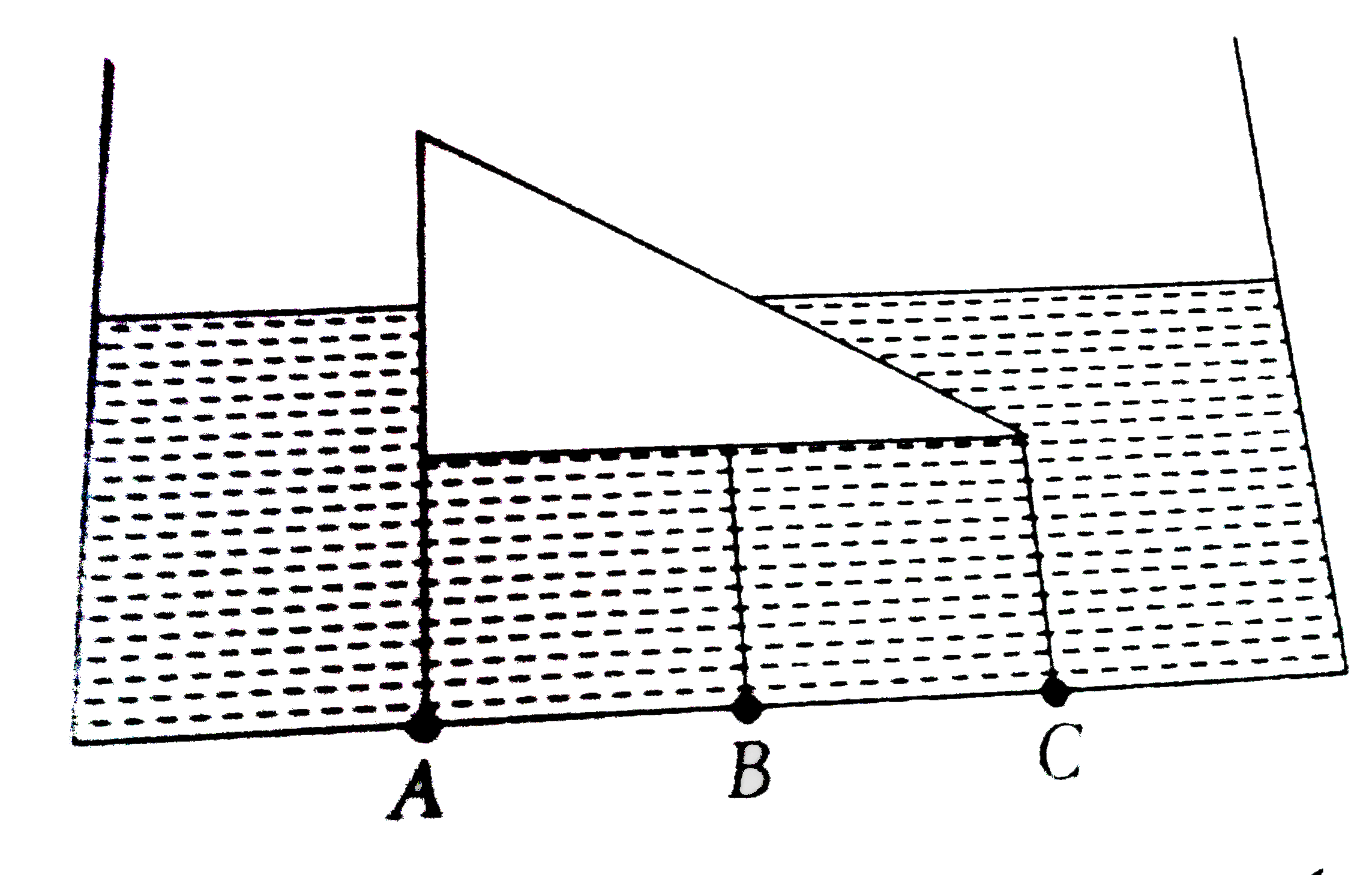The RD of an object which will float in water will be ………
less than 1
more than 1
equal to one
can be less or more than 1
To determine the relative density (RD) of an object that will float in water, we can follow these steps:
1. Understanding Relative Density:
Relative density (RD) is defined as the ratio of the density of an object to the density of a reference substance, which in this case is water. The formula for relative density is:
RD=Density of the objectDensity of water
2. Density of Water:
The density of water is approximately 1g/cm3 (or 1000kg/m3) at standard conditions.
3. Condition for Floating:
An object floats in water if its density is less than the density of water. This means:
Density of the object<Density of water
4. Applying the Condition to Relative Density:
Since the density of the object is less than the density of water, we can substitute this into our relative density formula:
RD=Density of the objectDensity of water<1
5. Conclusion:
Therefore, the relative density of an object that floats in water is less than 1. The correct answer to the question is:
The RD of an object which will float in water will be less than 1.
Final Answer:
The correct option is less than 1.
---
Relative density (RD) is defined as the ratio of the density of an object to the density of a reference substance, which in this case is water. The formula for relative density is:
RD=Density of the objectDensity of water
The density of water is approximately 1g/cm3 (or 1000kg/m3) at standard conditions.
An object floats in water if its density is less than the density of water. This means:
Density of the object<Density of water
Since the density of the object is less than the density of water, we can substitute this into our relative density formula:
RD=Density of the objectDensity of water<1
Therefore, the relative density of an object that floats in water is less than 1. The correct answer to the question is:
The RD of an object which will float in water will be less than 1.
The correct option is less than 1.
Topper's Solved these Questions
- PHYSICAL QUANTITIES AND MEASUREMENT BOOK - ICSECHAPTER - PHYSICAL QUANTITIES AND MEASUREMENT EXERCISE - Exercises (Section I) Write T for True and F for False. Correct the false statements
6 Videos
- PHYSICAL QUANTITIES AND MEASUREMENT BOOK - ICSECHAPTER - PHYSICAL QUANTITIES AND MEASUREMENT EXERCISE - Exercises (Section I) Match the following
1 Videos
- PHYSICAL QUANTITIES AND MEASUREMENT BOOK - ICSECHAPTER - PHYSICAL QUANTITIES AND MEASUREMENT EXERCISE - Exercises (Section I) Name the following
5 Videos
- MODEL TEST PAPERS BOOK - ICSECHAPTER - MODEL TEST PAPERS EXERCISE - Model Test Paper 2 (Section II)
42 Videos
- SOUNDBOOK - ICSECHAPTER - SOUNDEXERCISE - Picture Study
4 Videos
Similar Questions
Ice floats on water because
View SolutionAn object of uniform density is allowed to float in water kept in a beaker. The object has triangular cross-section as shown in the figure. If the water pressure measured at the three points A, B and C below the object are PA,PB and PC respectively. Then

View Solution
Knowledge Check
A man is sitting in a boat which is floating in a pond.If the man drinks some water from the pond ,the level of water in the pond
AincreasesBdecreasesCremain unchangedDincreases or decreases depends upon the weight of man
An ice block with a cork piece embedded inside floats in water.What will happen to the level of water when ice melts ?
View SolutionWhy do objects made of wood or plastic float in water?
View SolutionName the metal which floats on water without any apparent reaction with it.
View SolutionHow does the density of material of a body determine whether it will float or sink in water?
View SolutionA piece of ice of floating in water. What will happen to the level water all ice melts? What will happen if the beaker the filled not with water but with liquid a. denser than water, b. lighter than water?
View SolutionWhy does an object float or sink when placed on the surface of water?
View SolutionA man is sitting in a boat, which is floating in a pond. If the man drink some water from the pond, will the level of water in the pond decrease ?
View Solution
